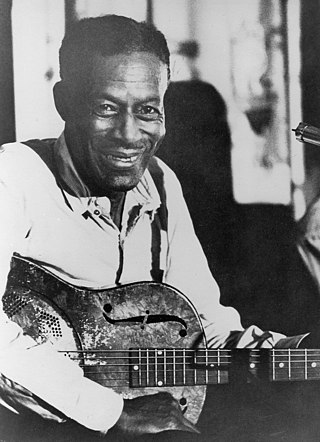
Edward James "Son" House Jr. was an American Delta blues singer and guitarist, noted for his highly emotional style of singing and slide guitar playing.

Antoine Dominique Domino Jr., known as Fats Domino, was an American singer-songwriter and pianist. One of the pioneers of rock and roll music, Domino sold more than 65 million records. Born in New Orleans to a French Creole family, Domino signed to Imperial Records in 1949. His first single "The Fat Man" is cited by some historians as the first rock and roll single and the first to sell more than 1 million copies. Domino continued to work with the song's co-writer Dave Bartholomew, contributing his distinctive rolling piano style to Lloyd Price's "Lawdy Miss Clawdy" (1952) and scoring a string of mainstream hits beginning with "Ain't That a Shame" (1955). Between 1955 and 1960, he had eleven Top 10 US pop hits. By 1955, five of his records had sold more than a million copies, being certified gold.
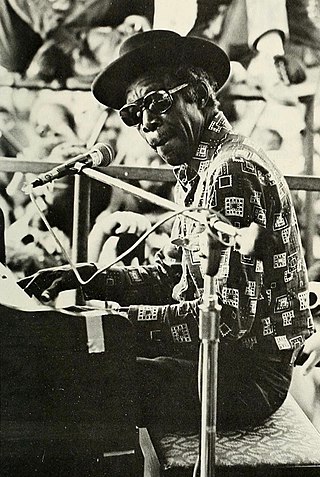
Henry Roeland "Roy" Byrd, better known as Professor Longhair or "Fess" for short, was an American singer and pianist who performed New Orleans blues. He was active in two distinct periods, first in the heyday of early rhythm and blues and later in the resurgence of interest in traditional jazz after the founding of the New Orleans Jazz and Heritage Festival in 1970. His piano style has been described as "instantly recognizable, combining rumba, mambo, and calypso".
The music of Louisiana can be divided into three general regions: rural south Louisiana, home to Creole Zydeco and Old French, New Orleans, and north Louisiana. The region in and around Greater New Orleans has a unique musical heritage tied to Dixieland jazz, blues, and Afro-Caribbean rhythms. The music of the northern portion of the state starting at Baton Rouge and reaching Shreveport has similarities to that of the rest of the US South.
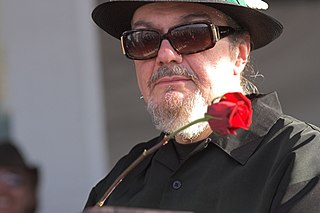
Malcolm John Rebennack Jr., better known by his stage name Dr. John, was an American singer and songwriter. His music combined New Orleans blues, jazz, funk, and R&B.

David Louis Bartholomew was an American musician, bandleader, composer, arranger, and record producer. He was prominent in the music of New Orleans throughout the second half of the 20th century. Originally a trumpeter, he was active in many musical genres, including rhythm and blues, big band, swing music, rock and roll, New Orleans jazz, and Dixieland. In his induction into the Rock and Roll Hall of Fame, he was cited as a key figure in the transition from jump blues and swing to R&B and as "one of the Crescent City's greatest musicians and a true pioneer in the rock and roll revolution".

Bobby Rush is an American blues musician, composer, and singer. His style incorporates elements of blues, rap, and funk, as well as a comic sense about blues tropes.

Kenny Neal, is an American blues guitar player, singer and band member.

Clarence Henry II, known as Clarence "Frogman" Henry, was an American rhythm and blues singer and pianist, best known for his hits "Ain't Got No Home" (1956) and "(I Don't Know Why) But I Do" (1961).

John Fred Gourrier was an American blue-eyed soul, swamp pop, rock and roll, and R&B performer from Baton Rouge, Louisiana, best known for the 1967 hit song "Judy in Disguise ".
Robert Charles Guidry, known as Bobby Charles, was an American singer-songwriter.

Wardell Joseph Quezergue was an American composer, arranger, record producer and bandleader, known among New Orleans musicians as the "Creole Beethoven". Steeped in jazz, he was an influential musician whose work shaped the sound of New Orleans rhythm and blues, funk and pop music. His role as an arranger and producer kept him out of the spotlight and enabled him to enhance the careers of many. He was a staple of the New Orleans music scene and the recipient of an honorary doctorate in music.
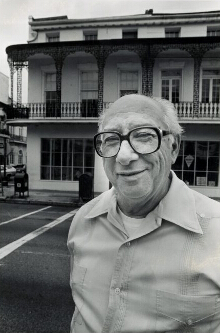
Cosimo Vincent Matassa was an American recording engineer and studio owner, responsible for many R&B and early rock and roll recordings.
Doug Duffey is a singer, songwriter, pianist, bandleader, music arranger, record producer, music publisher, poet, diarist, photographer and visual artist. From Monroe, Louisiana, United States, Doug Duffey was inducted into the "Louisiana Hall of Fame" in April, 2001 and inducted into the National Blues Hall of Fame in 2009.

Henry Gray was an American blues piano player and singer born in Kenner, Louisiana. He played for more than seven decades and performed with many artists, including Robert Lockwood Jr., Billy Boy Arnold, Morris Pejoe, the Rolling Stones, Muddy Waters, and Howlin' Wolf. He has more than 58 albums to his credit, including recordings for Chess Records. He is credited as helping to create the distinctive sound of the Chicago blues piano.

Al "Carnival Time" Johnson is an American singer and piano player best known for the Mardi Gras song "Carnival Time".
Cyril Vetter is an American songwriter with a career has spanned a variety of industries, including music, broadcasting and publishing. He owned TV and radio stations, a television production firm, newspapers as well as music recording and publishing companies. He may be best known for the popular song "Double Shot ", co-written with Don Smith.
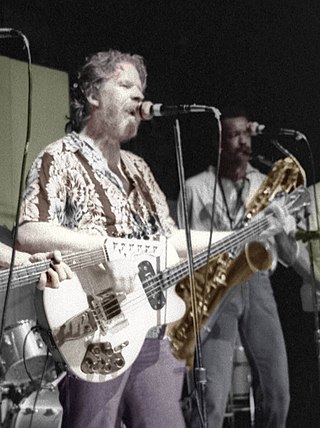
Willie Murphy was an American pianist, singer, producer, and songwriter. He is known for his solo work as a singer and pianist; as a singer, bassist and guitarist for the blues band Willie and the Bees; and for his collaborations with Bonnie Raitt and John Koerner.














